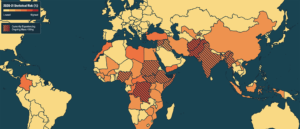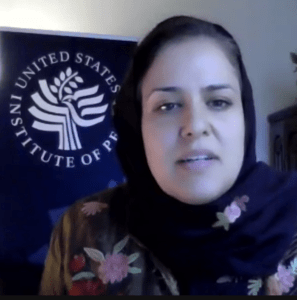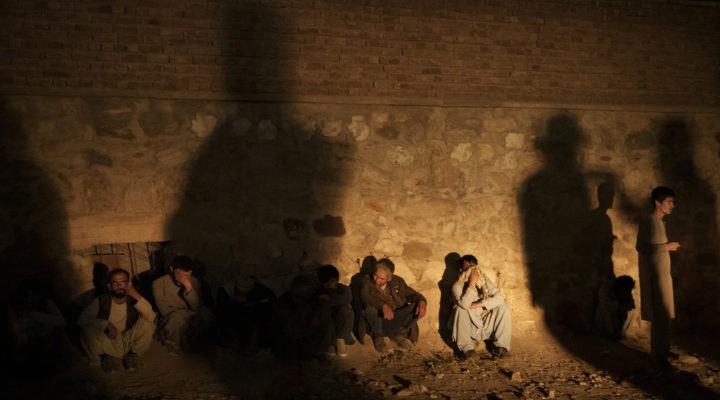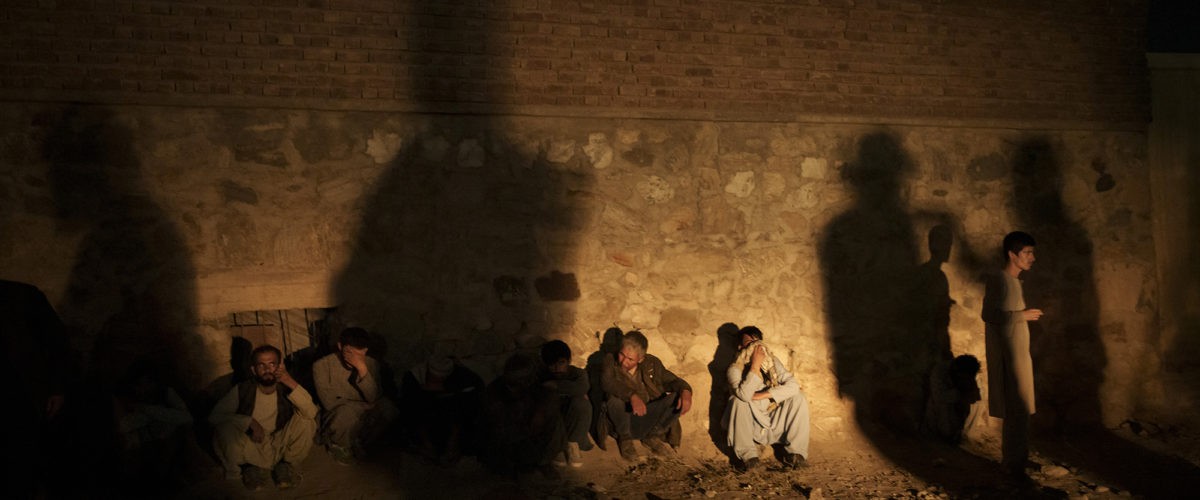The United States and the global community must pressure the Taliban to cease persecuting Afghanistan’s religious and ethnic minorities, women, LGBTQ communities and even Muslims, said a virtual panel of experts convened Oct. 6 by the U.S. Commission on International Religious Freedom.
And the best way to motivate the fundamentalist Islamic group to govern with humanitarian values is to hit them in the pocketbook, panelist Palwasha Kakar said during USCIRF’s “Update on At-Risk Religious Communities in Afghanistan.”
“The Taliban are seeking international legitimacy, and their economy is in dire straits. So, those are two very key leverage points,” said Kakar, interim director of religion and inclusive societies with the United States Institute of Peace.

Krish O’Mara Vignarajah
The regime is also known to be desperate for increased international aid shipments, a vulnerability that could be exploited for human rights advances, said panelist Krish O’Mara Vignarajah, president of Lutheran Immigration and Refugee Service.
“Whether it is protection of religious minorities and women and girls, it is critically important that we withhold any assistance until we see those types of actions. When the Taliban say they are newer and better — actions speak louder than words,” she said. “The two most important levers we can pull at the moment are the power of the purse and diplomacy.”
But those levers will have to be pulled swiftly and decisively because reports from Afghanistan indicate the Taliban government is leaning heavily into its penchant for violence and severe social controls since filling the vacuum created by the U.S. departure finalized Aug. 31.
 Afghanistan under Taliban control has quickly risen to the top of international watch lists ranging from the U.S. State Department’s “entity of particular concern” designation to the U.S. Holocaust Museum’s Early Warning Project, which lists the nation “second in the world for the risk of a new onset of mass killing of civilians in 2020–21.”
Afghanistan under Taliban control has quickly risen to the top of international watch lists ranging from the U.S. State Department’s “entity of particular concern” designation to the U.S. Holocaust Museum’s Early Warning Project, which lists the nation “second in the world for the risk of a new onset of mass killing of civilians in 2020–21.”
USCIRF Chair Nadine Maenza and Commissioner Frederick A. Davie provided accounts of Taliban actions that have alarmed the international community and sent Afghans fleeing to other nations by the tens of thousands.
The outlook for religious minorities and Muslims who disagree with Taliban theology has become dire since the fundamentalist sect assumed total control in mid-August, Maenza said.

Nadine Maenza
The regime recently installed an all-male government, shuttered the Ministry for Women’s Affairs and reinstated its Ministry for Propagation of Virtue and Prevention of Vice, notorious before the 2001 U.S. invasion for applying draconian controls on the movements and rights of women and girls.
“They are a grave threat to all Afghans,” Maenza said of the Taliban.
Just how grave is becoming apparent through proclamations and targeted violence against religious minorities and those deemed to be promoting secular values and practices, Davie said.
Women in Afghanistan have been warned to stay home and girls have been banned from secondary education and sports, he said. A pregnant police officer recently was shot, images of women have been removed from billboards, and unmarried women and girls are being forced to marry Taliban fighters.

Frederick Davie
“Women are now reportedly afraid to leave home without male chaperones, and barbers have been warned not to give Western-style haircuts to men or to trim beards,” Davie said.
Notorious in the 1990s for banning music, the Taliban are again destroying musical instruments, banning entertainment programs from television and targeting entertainers with violence, including the execution of a comedian and murder of a folk singer, he said. Meanwhile journalists, human rights activists and religious leaders who interpret the Quran and Islam differently also have been killed.
And the ISIS-K terrorist group has been committing atrocities in parts of Afghanistan where it has targeted religious minorities, including the Hazara Shi’a sect, he said. “There are far-reaching consequences for all religious minorities and others who do not agree with strict interpretation of Islam.”

Palwasha Kakar
The Taliban also have used — or failed to prevent — kidnappings, assassinations and attacks on sacred sites against Hindu and Sikh minorities, Kakar said.
A litmus test for international recognition of the Taliban must include cessation of targeted violence, the return of confiscated land and homes, the protection of cultural sites and freedom to worship for all religious minorities, she said.
But the U.S. also must focus on the needs of Afghans who have fled the Taliban, Vignarajah added. “Those who lived in fear of persecution, including religious minorities, should face as little resistance as possible in their pursuit of safety on our shores.”
She urged Congress to pass the Afghan Adjustment Act, which would provide green cards and paths to citizenship for refugees who did not serve with U.S. troops in Afghanistan.
“The U.S. has a moral obligation to provide pathways to protections” for the Afghan refugees facing “fear and anxiety after leaving everything behind” and facing xenophobia and anti-immigrant sentiments in their new settings, Vignarajah said.
“The U.S. has a moral obligation to provide pathways to protections.”
Americans also are needed to support as many of the 95,000 or more Afghan refugees expected to be resettled in coming weeks and months. Landlords are needed to rent to the arriving families, and cash is needed to pre-pay rents.
Volunteers also are needed to meet refugees at airports and to help them negotiate life and culture in the U.S, she said, noting that in the past six weeks, 48,000 Americans have signed up to help her agency do just that — but more are needed. “No matter where you are in the country, I guarantee you there will be a family relocating somewhere near you.”
Related articles:
‘Humanitarian catastrophe’ unfolding in Afghanistan
Love ’em and leave ’em: America walks out on Afghanistan | Opinion by Erich Bridges
Long after the news cycle fades, Afghan refugees will still need our care | Opinion by Samira Izadi Page


